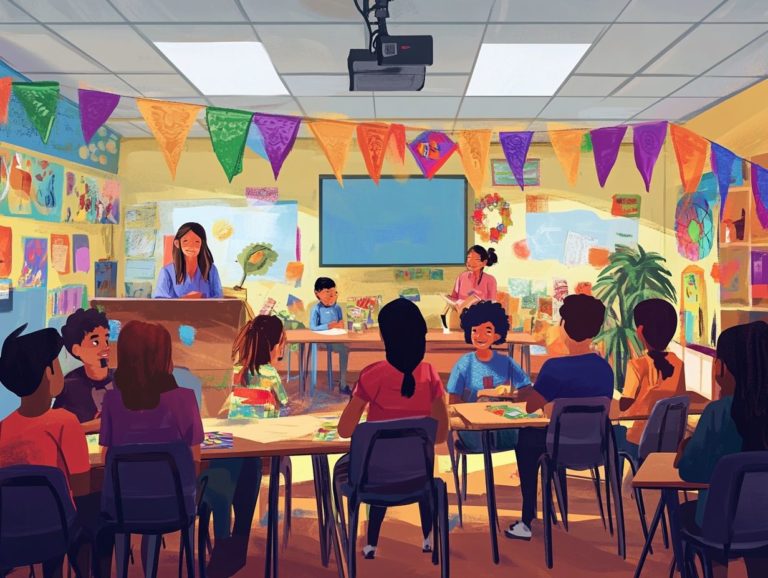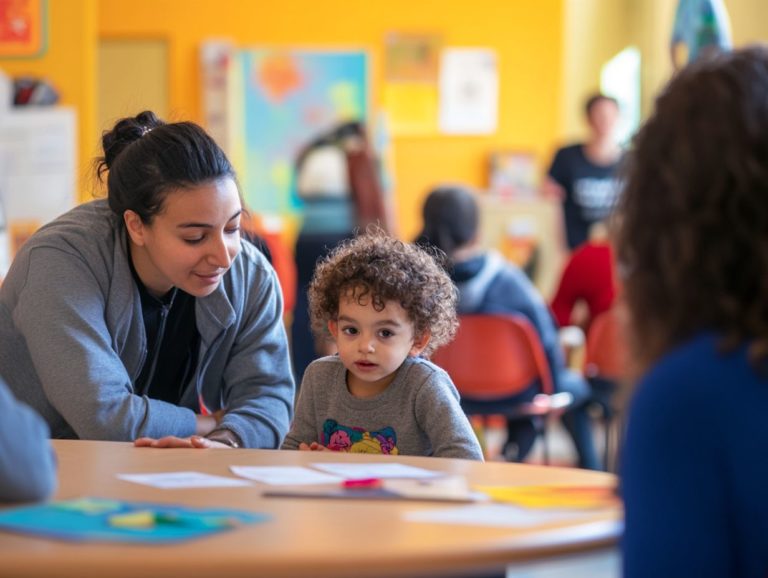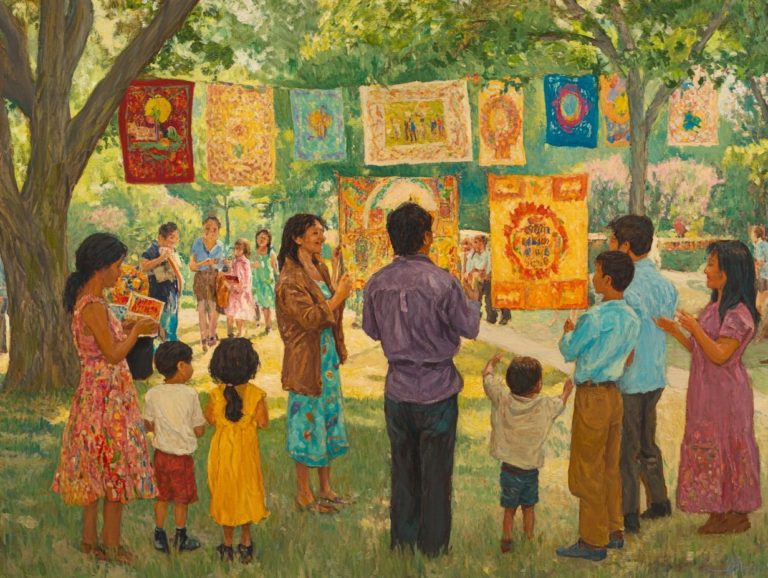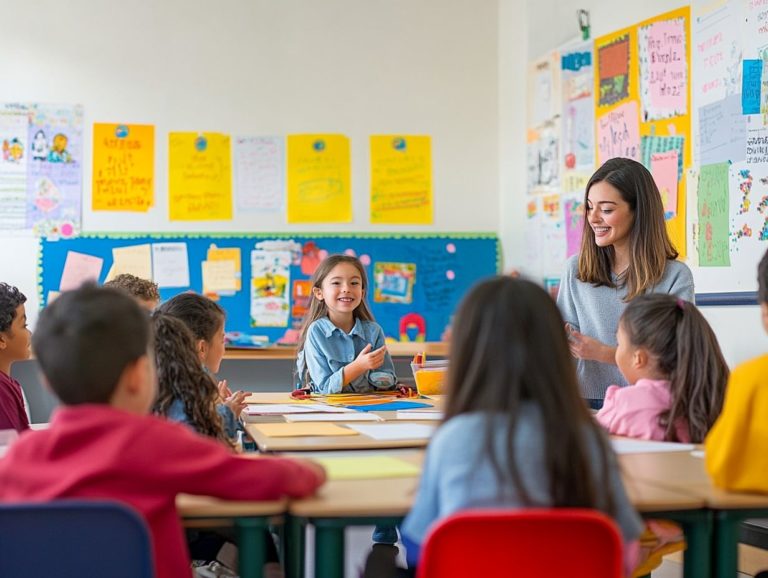exploring cultural festivals for language learning
Cultural festivals offer vibrant, immersive opportunities for language learning. They seamlessly connect textbook knowledge with real-world application.
By engaging in these dynamic events, you not only expand your vocabulary but also gain profound insights into the culture that shapes the language.
This article delves into why cultural festivals are ideal environments for language acquisition, highlighting their many benefits, offering strategies for effective participation, and showcasing popular festivals from around the globe.
Get ready to supercharge your language skills with the exciting experience of cultural festivals!
Contents
- Key Takeaways:
- The Role of Cultural Festivals in Language Learning
- Benefits of Participating in Cultural Festivals for Language Learning
- How to Incorporate Cultural Festivals into Language Learning
- Popular Cultural Festivals for Language Learning
- Tips for Making the Most of Cultural Festivals
- Frequently Asked Questions
- 1. What are the benefits of exploring cultural festivals for language learning?
- 2. How can exploring cultural festivals help me improve my language skills?
- 3. What types of cultural festivals are beneficial for language learning?
- 4. How can I incorporate cultural festivals into my language learning routine?
- 5. Are there any potential challenges of exploring cultural festivals for language learning?
- 6. Can cultural festivals be used as a standalone method for language learning?
Key Takeaways:
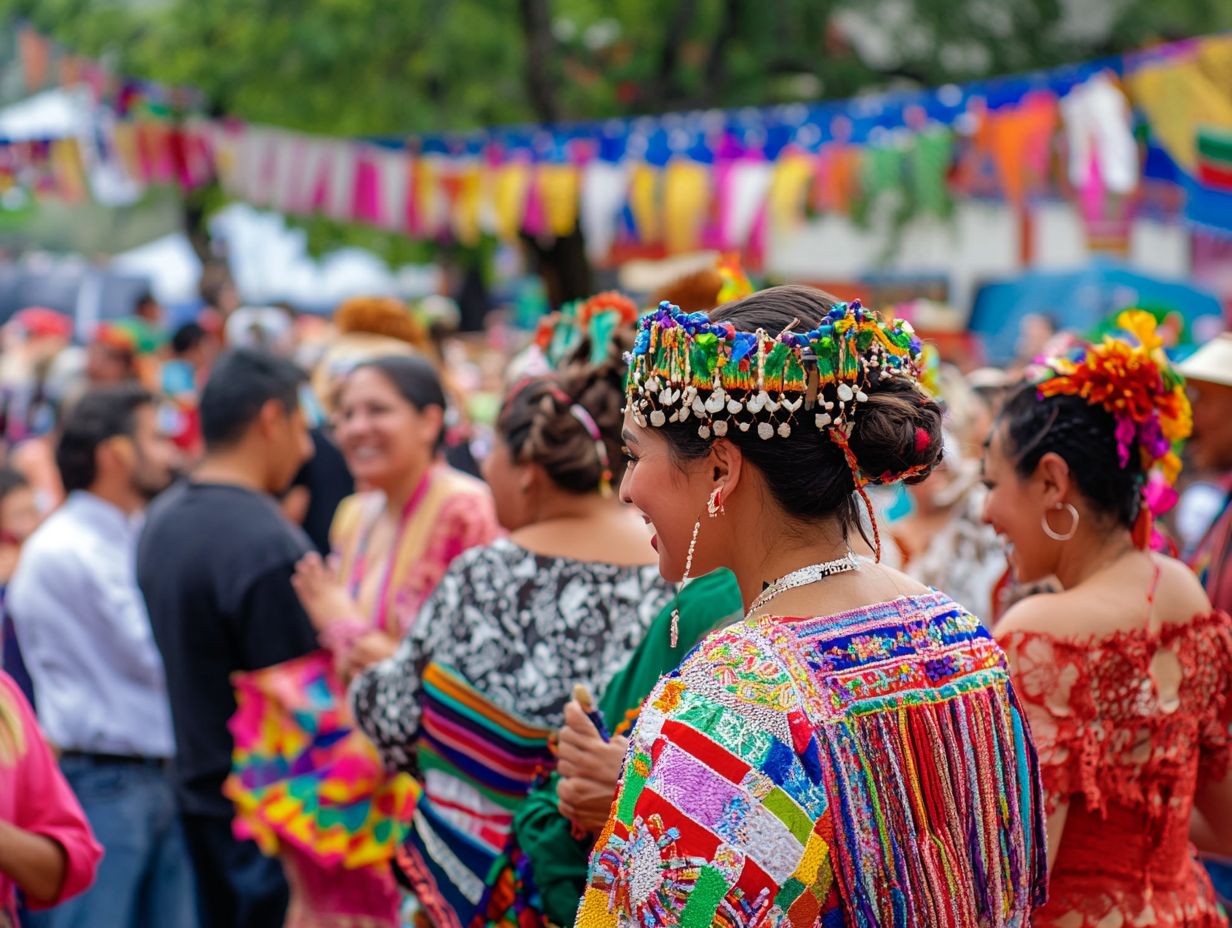
Cultural festivals provide an immersive environment for language learning, allowing learners to experience the language in its authentic cultural context and explore cultural heritage through language learning.
Participating in cultural festivals enhances cultural understanding and communication skills, improving language proficiency and intercultural competence.
Incorporating cultural festivals into language learning requires strategic planning and preparation, but can greatly enhance the learning experience and make it more enjoyable.
The Role of Cultural Festivals in Language Learning
Cultural festivals serve as a crucial component in your language learning journey, offering immersive experiences that link you to diverse cultures and communities.
These vibrant celebrations not only highlight traditional customs and social norms but also provide you with authentic exposure to common phrases used by locals, enhancing your language proficiency through real-time interactions.
By actively participating in these community events, you gain valuable cultural insights and a deeper understanding of historical vocabulary, enriching your educational experience and strengthening your connection to the global language landscape.
Why Cultural Festivals are Ideal for Language Learning
Cultural festivals present an unparalleled opportunity for language learning, immersing you in authentic language contexts that encourage interactive engagement.
At these vibrant gatherings, you ll find traditional ceremonies, music, dance, and delicious food, all offering countless chances to sharpen your language skills.
As you engage in conversations that include local greetings and colloquialisms, you’ll start to grasp the subtle nuances of social interaction. Mingling with native speakers in such a lively atmosphere sparks spontaneous dialogue, inviting you to step beyond your comfort zone.
The thrill of the festival not only ignites your motivation but also deepens your appreciation of cultural expressions, transforming language acquisition into a truly enjoyable and unforgettable experience.
Benefits of Participating in Cultural Festivals for Language Learning
Engaging in cultural festivals presents a wealth of advantages for language learners.
It not only enhances language acquisition but also cultivates deeper connections to social celebrations and culinary experiences.
Cultural Immersion and Language Acquisition
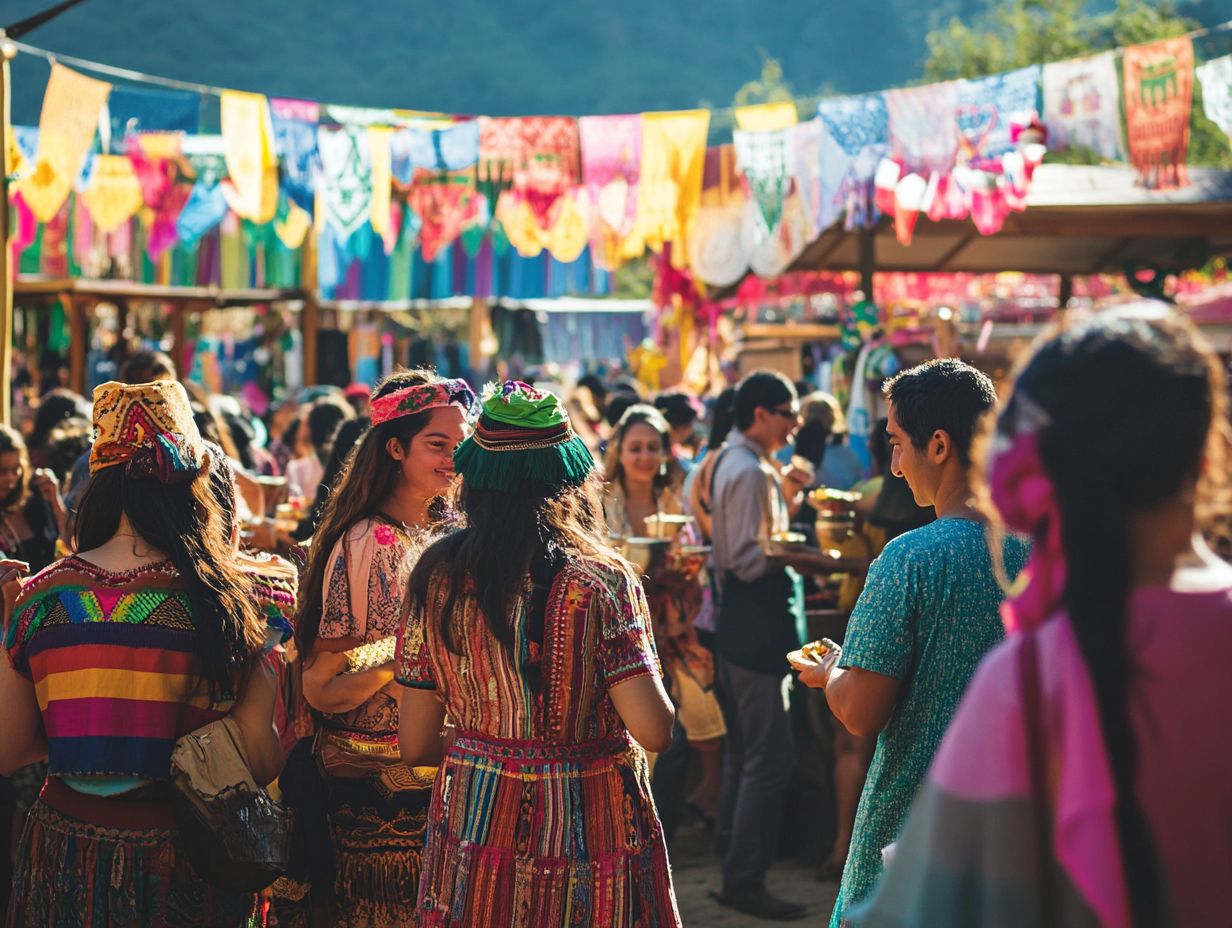
Cultural immersion at festivals offers you an authentic glimpse into the everyday use of language, significantly enhancing your language acquisition journey.
By engaging with locals during these vibrant celebrations, you have the opportunity to witness the nuances of communication gestures, idioms, and tonal variations that often slip through the cracks of traditional classroom instruction.
For instance, when you participate in a lively street parade, you’re not just an observer; you’re invited to dive into conversations, decode the chatter, and even contribute to cherished cultural traditions.
This level of engagement fosters a true understanding of local customs and social norms, as you become more attuned to the contexts in which certain phrases resonate.
Through such meaningful interactions, you elevate your language skills beyond basic vocabulary, cultivating a deeper emotional connection to the culture and its speakers. This, ultimately, enriches your overall learning experience.
What festival will you explore next to take your language skills to new heights?
Cultural Understanding and Communication Skills
Cultural festivals are a treasure trove for enriching your understanding of language and culture. They enhance your communication skills by immersing you in expressive language, rhythm, and intonation found in real-life interactions.
Through these hands-on experiences, you ll encounter informal phrases that traditional classrooms may overlook, helping you grasp the subtleties of casual dialogue.
Engaging with locals and fellow attendees creates an environment where language is not just an academic subject but a living, breathing experience. This interaction encourages you to navigate the social norms unique to each culture, rapidly deepening your appreciation for how context shapes meaning.
Such opportunities not only expand your vocabulary but also provide valuable insights into the values and traditions that influence communication styles. Ultimately, they broaden your perspective on language use in diverse settings.
How to Incorporate Cultural Festivals into Language Learning
To effectively weave cultural festivals into language learning, cultivate dynamic environments that encourage active participation in community gatherings. Immerse yourself in these vibrant experiences to enhance your understanding and appreciation of the language in its cultural context.
Strategies for Maximizing Learning Opportunities
Maximizing your learning opportunities at cultural festivals requires strategic planning and an emphasis on educational significance. Ensure that every interaction transforms into a meaningful learning experience.
Prepare thoughtful questions in advance to dive deeper into conversations with locals, enriching your understanding of their culture. Engaging in workshops gives you a chance to practice language skills in a supportive environment while gaining hands-on experience with traditional crafts or culinary delights.
Participating in storytelling, often a highlight of these festivals, sharpens your listening skills and fosters empathy and connection with diverse narratives.
These strategies spark interactive learning that makes every moment unforgettable, ultimately transforming events into immersive language and cultural exchanges.
Popular Cultural Festivals for Language Learning
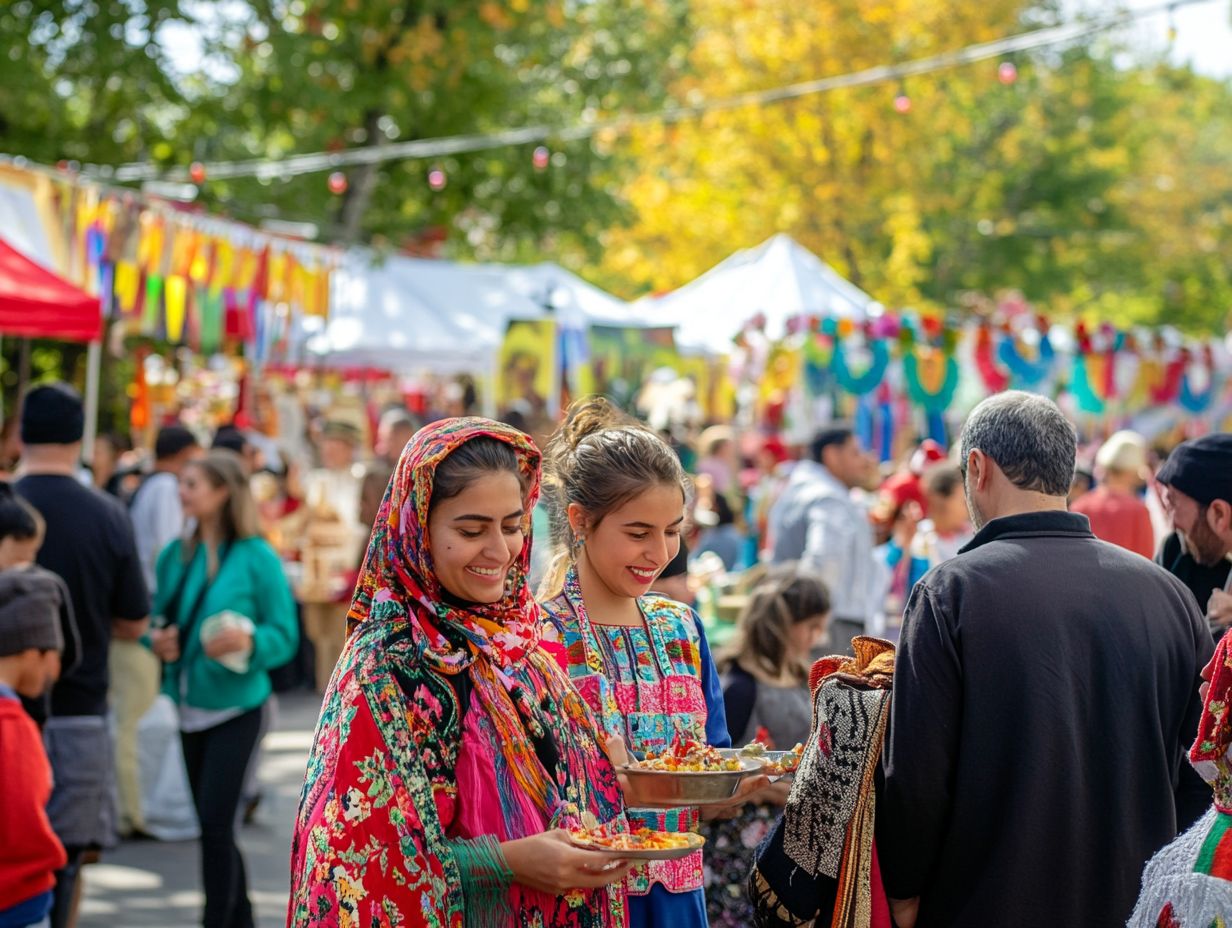
Across the globe, you’ll find numerous renowned cultural festivals that offer exceptional opportunities for language learning. These vibrant celebrations showcase diverse global traditions and highlight the impact of cultural events on language learning, introducing you to a rich tapestry of unique vocabulary, making the experience enjoyable and educational.
Examples of Festivals Around the World
Festivals like El D a de los Muertos in Mexico, Tanabata in Japan, and Carnival in Brazil present rich cultural landscapes to dive into as a language learner. These celebrations honor heritage and tradition while offering invaluable opportunities for immersive experiences in the local language.
During El D a de los Muertos, engage in storytelling and share anecdotes about loved ones while practicing vocabulary related to memory and identity.
Tanabata, with its colorful decorations and poetic traditions, invites you to interact by writing wishes on strips of paper, enhancing your reading and writing skills in a unique way.
Meanwhile, Carnival envelops you in a dynamic atmosphere where music and dance unite people. You can pick up informal phrases through lively exchanges with locals.
Each festival serves as a vibrant classroom, intricately woven with language acquisition and cultural appreciation.
Tips for Making the Most of Cultural Festivals
Don’t miss out on maximizing the benefits of cultural festivals! Immerse yourself in the experience by following practical tips that will elevate your learning and deepen your connection within the community.
Preparing for and Participating in Festivals
Are you ready to dive into a world of language and culture through festivals? Preparing for and actively engaging in festivals is essential for you as a language learner. It allows you to practice your skills and immerse yourself in vibrant community gatherings.
To enhance your experience, start by researching the festival’s background. This provides valuable context and history that deepens your understanding and appreciation of the event. Familiarizing yourself with key phrases empowers you to communicate more fluently and confidently, enriching your interactions with native speakers.
Understanding the social significance and regional customs surrounding these celebrations offers deeper insights into the culture.
Connecting with festival participants not only provides practical language practice but also opens doors to meaningful connections. This transforms a simple event into a rich learning experience that extends well beyond the confines of a classroom.
Frequently Asked Questions
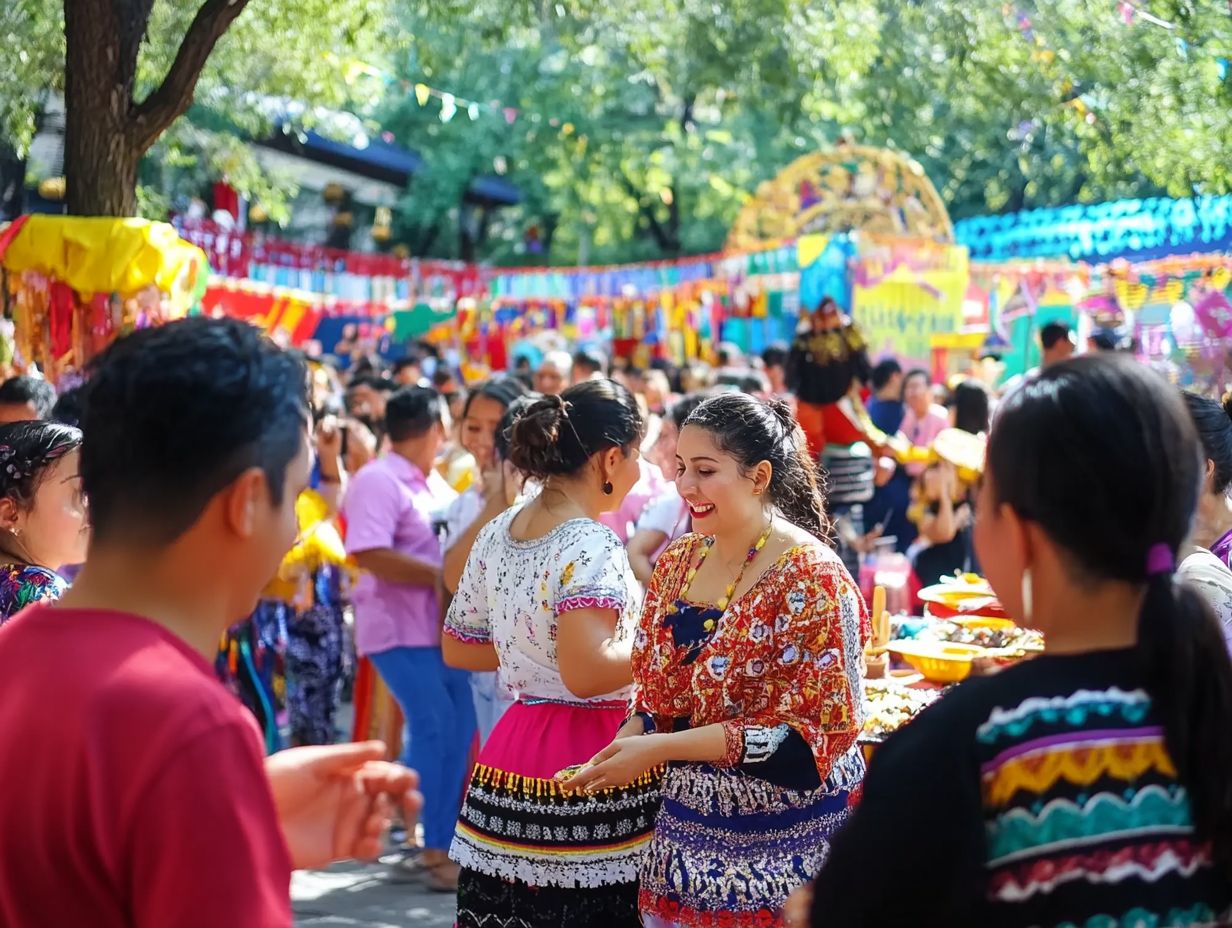
1. What are the benefits of exploring cultural festivals for language learning?
Exploring cultural festivals can greatly enhance your understanding and proficiency in a new language. It provides engaging learning experiences and exposes you to the cultural customs and traditions associated with the language. Additionally, language learning through cultural festivals offers opportunities for meaningful interactions with native speakers.
2. How can exploring cultural festivals help me improve my language skills?
Attending cultural festivals allows you to practice your language skills in a real-world setting. This improves your listening and speaking abilities, as well as your understanding of the language in context. You will encounter new vocabulary and expressions that traditional language classes may not cover.
3. What types of cultural festivals are beneficial for language learning?
Any type of cultural festival can be beneficial for language learning, as long as it relates to the language you are studying. This includes food festivals, music festivals, traditional celebrations, and more. Engaging in these experiences can highlight the role of cultural exchange in language learning. Choose festivals that spark your interest and match your language goals!
4. How can I incorporate cultural festivals into my language learning routine?
You can incorporate cultural festivals into your language learning routine by actively seeking out festivals in your area that align with the language you are studying. Plan trips to countries where the language is spoken to attend festivals there. You can also use online resources to virtually attend festivals and practice your language skills.
5. Are there any potential challenges of exploring cultural festivals for language learning?
One potential challenge is the lack of understanding of cultural norms and customs, which can lead to misunderstandings and confusion. Navigating the festival may be difficult if you are not familiar with the language. However, see these challenges as opportunities for growth and learning.
6. Can cultural festivals be used as a standalone method for language learning?
While cultural festivals can be a valuable supplement to traditional language learning methods, they should not be the sole method for learning a new language. It is important to have a structured curriculum and dedicated language practice outside of festival experiences.


